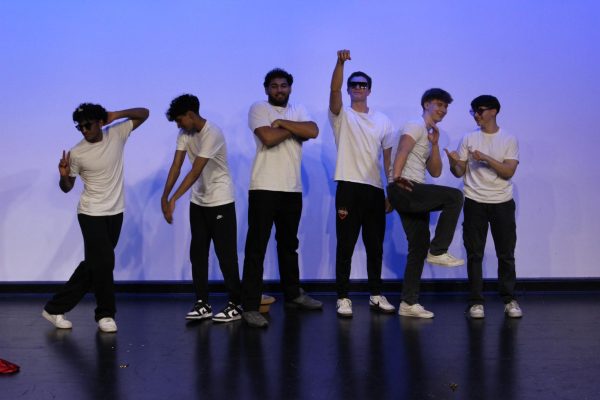Grammy’s newfound diversity
More women, people of color and diverse music genres were represented and celebrated than ever before at the 60th annual Grammy Awards this year.
Over the years, the Grammy recording academy’s – the group of individuals who decide the winners – go-to demographic that has been white males, especially for the more prestigious categories such as Record of the Year and Album of the Year.
In 2016, #GrammysSoWhite trended as many believed that too many white artists were being nominated compared to the many capable black artists.
The trend began when Beyoncé lost to Adele for Album of the Year, sparking an uprising on social media.
This especially upset some fans because the last black woman to win Album of the Year was Lauryn Hill in 1999. According to the New York Times, only 10 black artists have ever won the category since the award show began in 1959.
But this year we finally saw a change and introduction to more diverse nominees and genres of music represented.
To lots of fans and music lovers’ surprise, the majority of this year’s nominations were heavily directed toward Hip-Hop, Rap and R&B.
The Album of the Year category was dominated by four R&B/Rap artists and one alternative female artist: Childish Gambino for “Awaken, My Love!”; Bruno Mars for “24K Magic”; Kendrick Lamar for “DAMN”; Jay-Z for “4:44”; and Lorde for “Melodrama.”
Mars won this award and five others. Lamar won three.
This was the first time in the Grammy’s six decade history that a white male was not nominated for the category.
Several of the nominated albums also cover racial and social issues that are taking place in today’s society.
Jay-Z’s “4:44” highlights social status, colorism and his difficult upbringing as a black man in America, while Lamar’s “DAMN” touches upon gun violence, self-doubt and pride.
The same can be said for the Best New Artist category in which three women and two men of color were nominated: SZA, Julia Michaels, Lil Uzi Vert, Khalid, and Alessia Cara, who won the Grammy.
Jay-Z led with eight nominations, followed by Lamar’s seven and Mars’ six. Black and Dominican female artists SZA and Cardi B also made their marks with five total nominations for SZA’s R&B album “CTRL” and two for Cardi’s rap song “Bodak Yellow.”
The recording academy now believes that Rap and R&B are important genres that deserve to be recognized on a larger scale.
“Hip-hop and urban music are pervasive in the mainstream, not only in music but in culture, and not just in America but worldwide,” President of the Recording Academy Neil Portnow told the LA Times. “And it’s a formula for the kind of results we’re seeing today.”
Latin music was also embraced at the Grammy’s.
The first Spanish-language song, “Despacito” by Puerto Rican artists Fonsi and Daddy Yankee, was nominated for Record of the Year, as well as Song of the Year and Best Pop Duo/Group Performance.
The new found representation at the Grammy’s shows that the academy is finally embracing diversity among genres, races and gender.
Music is being recognized from all types of cultures and backgrounds which means the future looks bright for artists and music lovers alike.




